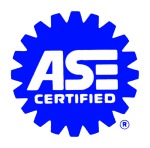Your engine is made of metal and contains metal parts. Those metal parts move. To keep the moving parts from destroying themselves through physical contact with each other, engines are designed to distribute a thin film of lubricant across the surfaces where metal would meet metal. The lubricant is oil.
Oil is the life blood of your car’s engine. Without it, internal movement of engine parts would create excessive heat and friction. Metal parts would expand and warp and dig into each other, quickly causing the engine to fail. Automotive motor oil forms a thin barrier between metal parts allowing them to slip past each other without touching.
Modern oils contain additives. These additives include rust and corrosion inhibitors, detergents, oxidation inhibitors, anti-foaming agents, friction reducing and anti-wear chemicals, and depressants which allow the fluid to flow at very cold temperatures.
Oils come in a variety of types with many variations, tailored to different engines. The types are divided into a standard set of “viscosity” (a measure of the fluid’s resistance to flow) and “service” ratings which identify, for example, whether the product is to be used in a gasoline or a diesel engine, or whether it is designed for “energy conservation.”
Automobile engines for many years used single viscosity oils. These were designed to flow freely when the engine reached its operating temperature. They did not flow as easily when the engines were first started. To reduce engine wear in “cold start” conditions, multi-viscosity products were developed.
As engines became more sophisticated they increasingly called for more sophisticated oils. Once the oil of aircraft engines, synthetics are now commonly recommended by manufacturers for high efficiency passenger vehicle engines.
Synthetic oils are clearly superior to conventional oils. They reduce friction and heat in engines due to the consistent size of the oil molecules they contain. They do not break down as readily under load. They increase engine power, lower oil consumption and increase fuel economy.
Synthetics do not have to be changed as frequently as conventional oils. Typically synthetics are changed at 7,500 to 12,000 mile intervals. Yet engines stay cleaner and last longer.
Using the wrong oil can seriously damage your car.
Using the wrong oil in newer cars can cause varnish or excessive sludge to accumulate and block oil passages. A blocked oil passage can cause overheating and friction, damaging engine components. Using oil with a high zinc phosphate level can damage catalytic converters. Using oil without zinc phosphate additives in an older car without a catalytic converter, can cause dramatically increased cam shaft and lifter wear.
So how do you know which oil to choose for your car or truck?
The best answer is: consult your vehicle owner’s manual. The engine in your car was designed to operate on a specific type of oil. The next answer is to consult an experienced mechanic whose principal business is not selling oil changes.
For our customers, we will look up the manufacture’s recommendations for your vehicle. We will review the vehicle’s mileage and service history to see what modification to the manufacturer’s recommendation is appropriate, and we will offer options to the customer.
Why should you change your oil?
Because additives diminish in potency over time;
Because small particles accumulate and are removed with an fluid change;
Because sludge and other contaminants are removed, and
Because moisture that builds up (creating the potential for rust and electrolysis damage) is removed.
At Superstition Motors Ltd we don’t make much money on oil changes. We do it for our customers to keep their vehicles from breaking down and to extend the life of their engines.
We do not compete with the quickie lube type business attached to a car wash. These businesses can offer you a $15 oil change because they purchase in bulk, use cheap oil, use cheap filters and hire low paid, inexperienced labor. Once they get you to “bite” on the low price, you will be subjected to a high pressure sales pitch to “upgrade service” or pay for items – like a transmission or coolant flush – that you do not need. And you will likely drive away with the wrong oil for your car.
Another thing to watch out for is the partial synthetic or synthetic blend. Synthetics are more expensive than conventional oils. Synthetics are popular right now and using the work “synthetic” on the label is a good way to sell oil at the auto parts store.
Synthetic oils are differentiated by the materials from which they are made. Those made from a polyalphaolifin (PAO)(API Group IV) or synthetic esters (API group V) are fully synthetic. These are truly “man –made” products. Oils made from hydrocracked/hydroisomerized mineral oil (API group III) are marketed as synthetic in the U.S. but not in other countries (e.g. Germany). Semi-synthetic oils are mineral oils containing up to 30% synthetic oil blended in.
We recommend and carry fully synthetic products made by Amsoil. We believe these are simply the best products on the market for modern high performance engines. We also carry conventional oils which we recommend for older vehicles and vehicles with high mileage that have not previously used synthetic lubricants.
Amsoil products are available for transmission, transaxle, differential, gear and specialty lubricant applications.









